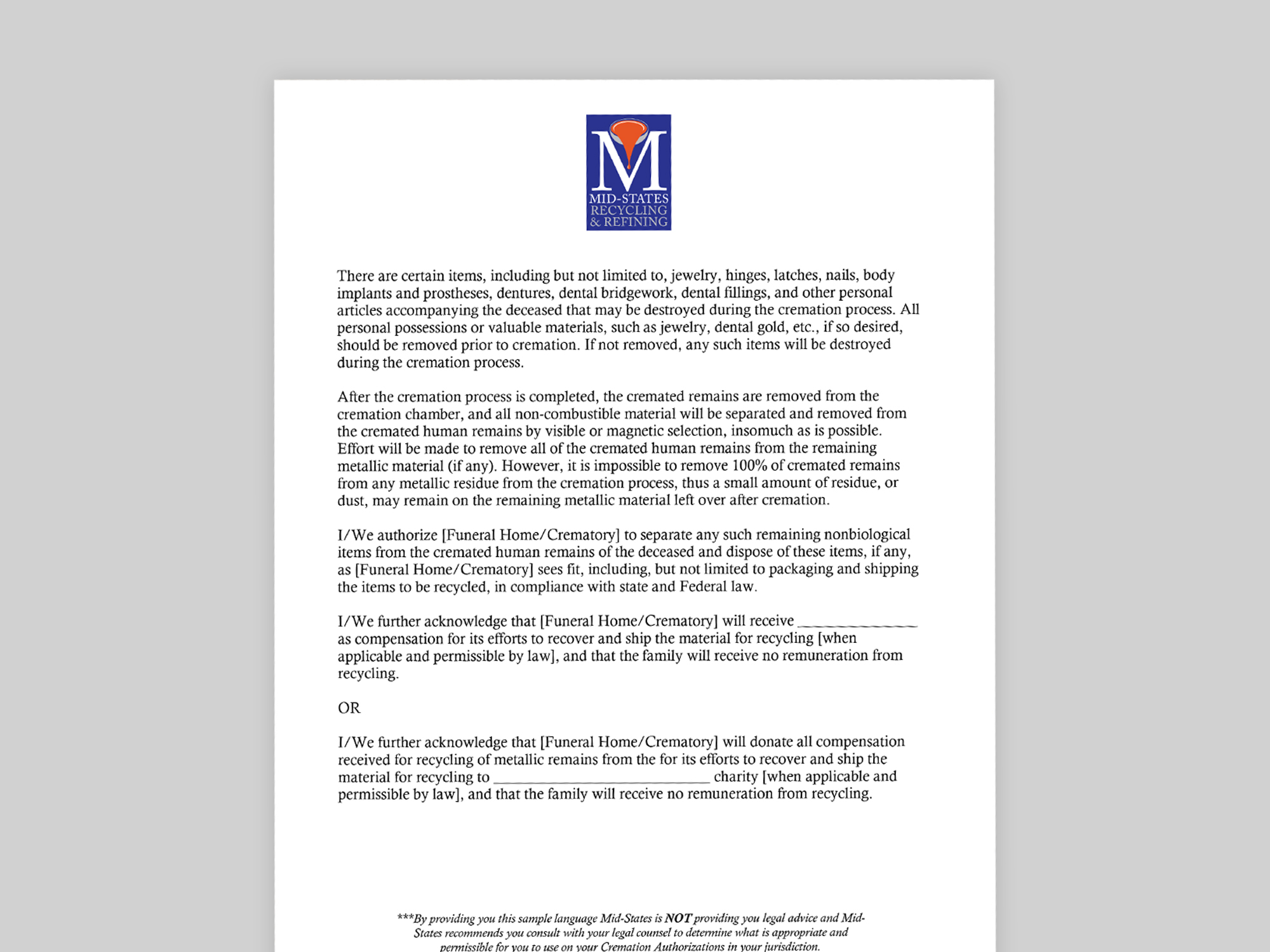Legal
The Value of Cremation Recycling
The recycling of metallic remains (screws, hinges, prosthetic implants, knee, and hip joints, etc.) that are not consumed during the cremation process is an environmentally sound practice that is now common in the U.S., Canada, and many European countries. Recycling is credited with extending the long-term availability of natural resources, reducing industrial production impact on the environment, and conserving energy.
The First Step of Recycling: Transparency
Before you begin a recycling program, check your state or province’s rules and regulations to understand what specific provisions apply to your business. The intent to recycle any metallic material left over from the cremation process should be clearly disclosed and authorized in writing, by all of the person(s) with the right to control the disposition of the remains (“Authorizing Party”). In order to determine who are the person(s) with the right to control the disposition of the remains where you operate, please consult your state or provincial law or your legal counsel.
Acknowledgment and authorization for recycling can most likely be built into your current cremation authorization form, or it can be a stand-alone form.
In addition to disclosure and authorization of recycling, your forms should also disclose and require acknowledgment of what happens to any compensation received from recycling, whether that compensation is monetary or not, and whether the compensation is kept or donated to a charity. Transparency is essential.
In addition to the usual elements of a Cremation Authorization, including but not limited to provisions regarding implants, pacemakers, etc., the basic elements that need to be included in order to recycle any metallic by-products from the cremation process are as follows:

While we cannot give you a recommendation on the specific language to use, due to the variability in laws across jurisdictions, we invite you to download our sample disclosure form. The language, once modified for your firm, can be used separately or included at the appropriate place in your cremation authorization form.
- Acknowledgement of knowledge of the recycling process and the facts that:
- There will be no way to recover/return identifiable metallic material to the family after the cremation and any material that the family desires to retain should be appropriately removed prior to cremation; and,
- Even though effort will be made to recover 100% of the cremated human remains, there may be some cremated remains residue present on the metallic material that is to be recycled.
- Authorization to dispose of or recycle any and all nonbiological material left over from the cremation.
- Acknowledgement of what will happen with compensation received from recycling, when applicable and permissible by law, and that the family will receive no remuneration from recycling.


